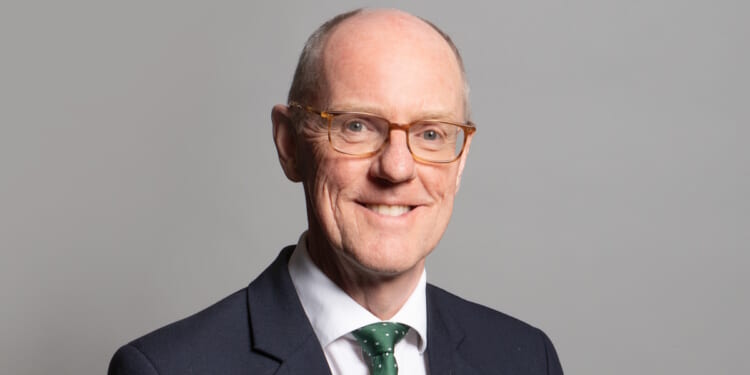Bill Jones is Hon. Professor Political Studies at Liverpool Hope University and is the author of ‘Just Like Us? The Politics of Ministerial Promotion in British Government’.
As the author of a book on ministerial promotion, my attention was caught by Danny Finkelstein’s recent article on Nick Gibb, a long serving junior education minister who never broke into the Cabinet but achieved more than many who did, being sometimes described as the “most influential schools minister in England’s history”. As Simon James has written:
“Attaining Cabinet rank is an enormously significant step for a minister, the promotion that places him above the salt; there is a huge gulf between the most popular and successful junior minister and the least known, least senior of cabinet ministers.”
Sadly Nick Gibb fell into the former category. Most politicians enter the profession to ‘make a difference’ and many fail to do even that. Gibb, however exceeded this minimum measure by a huge margin yet still failed to make that career adorning leap.
Appointed to the Select Committee on Education in 2003, he eschewed the default political short-termism and set his eyes on a horizon of long-term change. Convinced like Michael Gove that ‘progressive’ ideas (teaching focused on teaching pupils how to think rather than what they should know) were not working, Gibb became that rare political animal: a true ministerial expert in a very complex and conflicted policy field. Along with Gove he changed the curricula focus to one of knowledge. “The evidence is children need knowledge”, Gibb told the Daily Telegraph’s Louisa Clarence Smith in 2023:
“Children from advantaged backgrounds get knowledge from home; they discuss these things, they go to the theatre. If you come from a background where you don’t have that advantage and then knowledge builds on knowledge, you see that gap widens. And I’m not sure that the debate has taken off in the devolved nations in the way that it has here.”
The reason why Scottish and Welsh schools have fallen further behind England, Gibb suggests, is that they they failed to adopt such anti-progressive reforms. The unions hated both men but they would not be moved and were rewarded by seeing English pupils climb the international league tables – from 27th in in the world in maths in 2009 to 11th in 2022.
Gibb also, crucially, re-introduced the ‘phonics’ method of teaching reading (utilising alphabet sounds), leading Finkelstein to observe that “children in England are now the best readers in the western world”. “That’s probably my proudest thing,” Gibb has said, “getting hundreds of thousands , millions, reading more proficiently”. Labour, which initially had opposed phonics when they were introduced around 2013, soon abandoned plans to scrap them. Quite an achievement for the state-educated Gibb.
After serving as shadow schools minister he assumed the role for real under David Cameron, then Theresa May and Boris Johnson and finally Rishi Sunak. He was sacked and reappointed twice but managed to serve ten years in the same post, outlasting the five different education secretaries under whom he served.
As Finkelstein points out, Gibb’s achievements are a reproof to reshuffles where, as Ken Clarke ruefully observed, after two years “you are really on top of it – you are really comfortable, you are doing things. And then the phone rings and the prime minister is having a reshuffle and you move on to a new department and you are back at the beginning again.”
In other words our system allows ministers sufficient time to become competent in their role and then whisks them off to learn another complex portfolio all over again. Gibb did not suffer that fate, ever, and over his long tenure in office his continuity in post helped transform the nation’s schools – although in his case, promotion to education secretary would have allowed his expertise to continue growing and enable further useful reforms.
Ironically, after two years in junior post, Gibb was sacked by Cameron in 2012, receiving a call at 10.00 pm to see the prime minister the next day. “That’s the only night I’ve never slept one wink,” he says, “not even five minutes”l he accepted his sacking with equanimity and was reappointed by Cameron two years later.
But, given this outstanding success as a junior minister, why did Gibb not crack the Cabinet? In the Telegraph article he explained that he was worried his gay status would cause problems (‘It was impossible to be gay in politics in the 1980s and 1990s’) so he eschewed the social events he reckoned necessary to undertake the social networking necessary for such advancement.
However, this explanation doesn’t quite stack up. Chris Smith became the first openly gay MP who went on to serve as Tony Blair’s Secretary for Culture and Sport as early as 1997. Later on, Peter Mandelson, ‘outed’ as gay by Mathew Parris in 1998 on BBC’s Newsnight, became – in an admittedly topsy-turvy career now probably over – trade and industry secretary in 1998, later serving as Northern Ireland secretary and then, in a famous comeback, business secretary under Gordon Brown.
Gibb’s competence will have been noted by the whips and communicated into Number Ten where promotion decisions are taken. No, being gay was no real impediment and in May 2015 Gibb did come out and married his long term partner, Michael Simmonds. So why, despite his widely appreciated high level expertise, was there no promotion during the next nine years in the same role?
Only the chief whips and the five prime ministers since 2015 know the answer. Quite possibly whips assumed the quiet, introverted Gibb was content with his junior status (he tells us he would have liked “to have risen to Cabinet rank” but, from my studies, one of the first rules of a politician in pursuit of advancement is that self-promotion has to be locked into the mindset and practiced single-mindedly.
Instead, in his Telegraph interview Gibb gave valuable advice on how to be an effective minister: “focus all your effort and intellect into identifying the problem and finding a political solution.” The evidence is such advice is essential for newly appointed junior ministers but, as in Gibb’s case, sadly no guarantee of leading to a promotion into the cabinet.








![Keith Ellison Caught Promising to Fight State Agencies for Somali Fraudsters [WATCH]](https://www.right2024.com/wp-content/uploads/2026/01/Keith-Ellison-Caught-Promising-to-Fight-State-Agencies-for-Somali-350x250.jpg)








